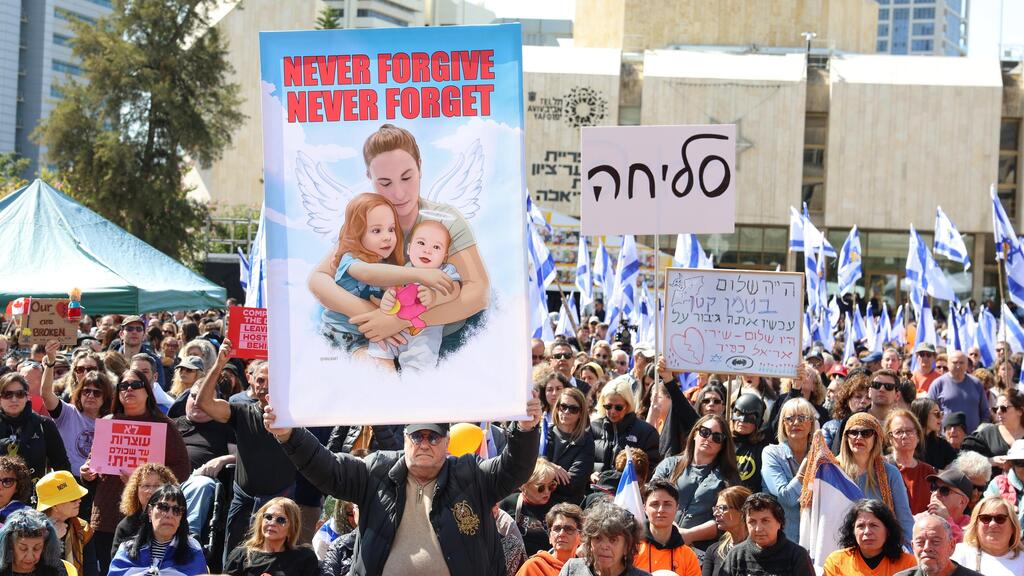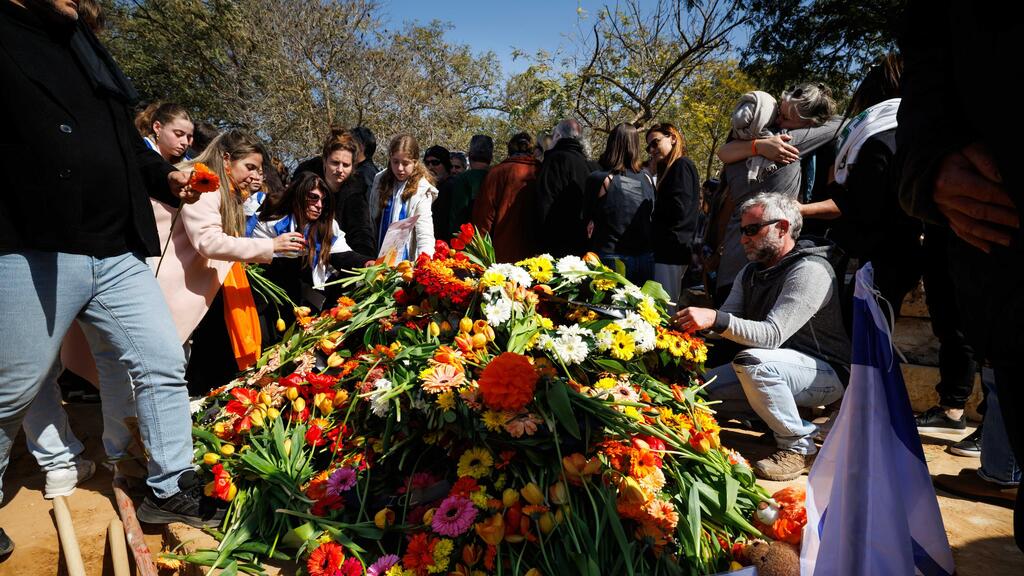For the 1948 War of Independence, there was Dani Mass—the young Palmach fighter from Jerusalem who commanded Gush Etzion and led the ill-fated Convoy of 35. His death at the war’s outset seemed to foreshadow the fate of thousands of his generation who fell for Israel’s independence.
For the Six-Day War, there was Yossi Ben Hanan—the operations officer of the 7th Armored Brigade, whose iconic photo of him wading in the Suez Canal, triumphantly raising an AK-47, became the ultimate symbol of total victory.
For the Yom Kippur War, there was Avi Lanir—the commander of the 101st Squadron, who carried out highly sensitive strategic missions, fell into Syrian captivity, and died heroically in a Damascus prison.
And for the war of October 7, there are Shiri, Ariel and Kfir Bibas—the 32-year-old mother, her four-year-old son and her nine-month-old baby, kidnapped from their home in Nir Oz and murdered by savages in Gaza.
More than 1,800 Israelis have been slaughtered or fallen since the war began, but the image of a mother embracing her two red-haired sons has become its defining symbol. The tragedy of "the gingers" has turned into the defining story of this pivotal historical moment. There is no one in this country for whom the Bibas family's fate has not become an inseparable part of their own life. Their blood is our blood. Their fate is our fate.
But this is not just about grief, sorrow or heartbreak. The reason the baby, the little boy and the mother have become a national symbol is because of the way they were taken and the way they were killed—both of which revealed, with chilling clarity, exactly what we are up against: absolute evil.
Get the Ynetnews app on your smartphone: Google Play: https://bit.ly/4eJ37pE | Apple App Store: https://bit.ly/3ZL7iNv
The horror that befell them was our collective wake-up call. That is why, when we laid them to rest yesterday, we buried a part of ourselves as well. We buried the hope that we will see true peace in our lifetime. We buried the illusion that we could ever live here in normalcy and tranquility.
The new truth is an ancient one: we will forever live by the sword. The Israeli-Palestinian conflict is unsolvable. It is no coincidence that the Oslo Accords failed, that the Camp David Summit collapsed, or that the Gaza disengagement led to Hamas commando units storming the lawns of Kfar Aza and Be’eri.
It is no coincidence that when our neighbors were given full control over territory for the first time, they did not turn it into Dubai but into a fortified hub of fanaticism and hatred. It is no coincidence that just beyond the plowed fields of the western Negev, a sick culture of death took root—one that ultimately led to the barbaric murder of an innocent child who had not even lived a full year.
We must not be sanctimonious. The century-old war between us and our neighbors has always been a brutal one, in which neither side has shown mercy. True, we accepted an Arab state; they never accepted a Jewish one. Unlike them, we tried to uphold the purity of arms. But the conflict’s dynamics swept everything away.
They massacred us in Hebron in 1929; we planted bombs in their markets in the 1930s. They tried to annihilate us in 1948; we drove them from their homes. They chose terror; we chose settlement. They chose hatred; we built military, organizational, scientific and economic superiority. A historical tragedy of two peoples locked in a death grip.
But at a certain point, this national conflict mutated into something even darker—one that compels some of our enemies to commit demonic acts. Some of them prefer our death over their own lives. To them, we are all Bibas. Their intent is to do to every reader of this article what they did to Shiri, Ariel and Kfir.
That is why the deeper meaning of the horrifying murder of this young family from Nir Oz is crystal clear: We are facing an enemy that has lost all semblance of humanity. This is no longer a conflict over land, resources or interests. This is a religious war—a direct clash between good and evil, between life and death.
In this existential battle, we must win. We must bring every hostage home. We must return to the battlefield and achieve decisive victory. As we mourn, as we cry, as we lay our dearest ones to rest in this land—we must remember this.
We must never lose our humanity, nor our morality, as our enemies have. But we must win. Completely. To the very end.



